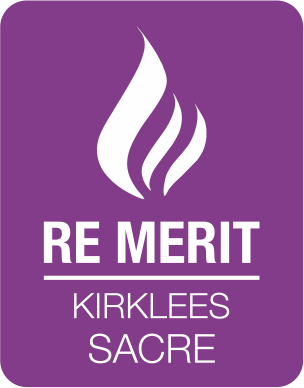RE
Intent: Subject Vision
At Roberttown, we want our children to be thoughtful, inquisitive and kind. We want them to understand the relevance of Religious Education to the world in which they live today. We want them to enjoy their RE lessons and feel confident enough to ask the Big Questions. RE, at Roberttown, should give the children the knowledge to develop their own answers to these questions.
RE at Roberttown promotes the holistic development of the child; It facilitates their intellectual, social, emotional, spiritual and moral development. Religious Education provides a space for students to encounter and engage with the deepest and most fundamental questions relating to life, meaning and relationships. It encourages them to reflect, question, interpret, imagine and find insight for their lives.
RE at Roberttown, plays a critical role by providing opportunities for students to consider the variety of religious beliefs found in their community and beyond. It encourages respect and understanding of different beliefs, perspectives and ways of living, including both the religious and non-religious response to human experience.
It is our intention at Roberttown, to ensure that the RE we teach supports the development of our children by helping them-to explore how religious and other beliefs are expressed; engage with life’s big questions; and reflect on moral values for life. It contributes to their personal development and well-being and to community cohesion by promoting mutual respect and tolerance in a diverse society.

Implementation: Our Approach
At Roberttown, we follow the Kirklees syllabus Believing and Belonging 2019 – 24 (revised 2021) which uses and reflects the Curriculum Framework for RE in England published by the RE Council in 2013 and the Commission on RE report 2018. In order to fulfil these requirements a combination of Kirklees Units and Understanding Christianity is used.
As specified in this syllabus, focus is placed on specific core religions at each key stage:
Christianity and Islam from KS1,
Christianity, Islam, Sikhism and Judaism at Key Stage Two.
In addition, other (non-religious) world views are also included at both Key stages.
RE is taught as a discrete subject from years 1-6. In Early years, Understanding Christianity is also followed but integrated within the Early Years curriculum.
At least one hour a week is dedicated to the teaching of RE. This is through discrete RE lessons, daily Collective Worship, reflection opportunities, activities integrated into other curriculum areas and a continued focus on the school Values and vision’ The Good Samaritan’. Where possible, links are drawn between the children’s lives and their learning and understanding in RE. Our link with our local church ‘All Saints’ is close and we visit as a whole school each term. Harvest, Christmas and Easter services help enhance the children’s understanding of the Church in the world and local community.
Wider opportunities to further enrich the RE curriculum are offered at Roberttown – be that through the use of Godly Play, Easter Day, Lent club and Spiritual journeys or visitors to the school.
A variety of pedagogical methods are used to teach RE at Roberttown - Whoosh technique, Drama, Bible stories and texts, hot seating, videos, reflection, use of objects and questioning. Across school RE is recorded in discrete RE books as well as on Seesaw.


